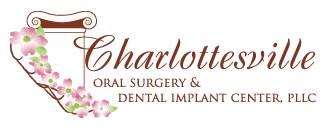25 Jan Is Sedation Dentistry Safe?
In dentistry, there is a constant battle to deliver dental care that meets an enormous list of expectations. Our constant goal is to provide care that is faster, more attractive, more versatile, more comfortable, more predictable, and more conservative. But, above all, every aspect of the dental experience must be safe.
If you are considering sedation dentistry, you should know that safety is the top priority for your oral surgeon. In order to administer various levels of sedation, your oral surgeon must comply with strict guidelines set by the American Dental Association (ADA). In addition to the ADA guidelines, each state enforces its own set of regulations.
In order to manage your anxiety and control pain, the level of your sedation can be adjusted to safely meet your needs:
- Minimal sedation – safe doses of commonly prescribed medications such as anti-anxiety medication and laughing gas (nitrous oxide)
- Moderate sedation- May involve a higher dose of a commonly prescribed anti-anxiety medication that can be taken by mouth or intravenously.
- Deep sedation (general anesthesia) – the highest level of sedation, generally reserved for extensive surgical procedures.
To keep you safe, the ADA states that the dentist must complete a specified number of hours in the areas of classroom instruction, CPR training, medical emergency management, and additional hands-on experience in order to administer moderate sedation. To administer deep sedation, the dentist must complete an additional accredited surgical residency program.
Studies indicate that 75% of dental patients can report some level of anxiety or nervousness when it comes to receiving dental treatment. Most are especially afraid of needles and the anticipation of pain. Fortunately, there are safe alternatives like sedation dentistry to ease your tension.
By recognizing your dental phobias and understanding that you have access to safe and effective sedative solutions, you can conquer your fears and make the most out of your dental visit. Start by choosing an appointment time when you are most likely to feel calm and relaxed. Then, talk to your oral surgeon about your concerns and learn more about how sedation can help. Call 434-295-0911 today to schedule your informative consultation.
